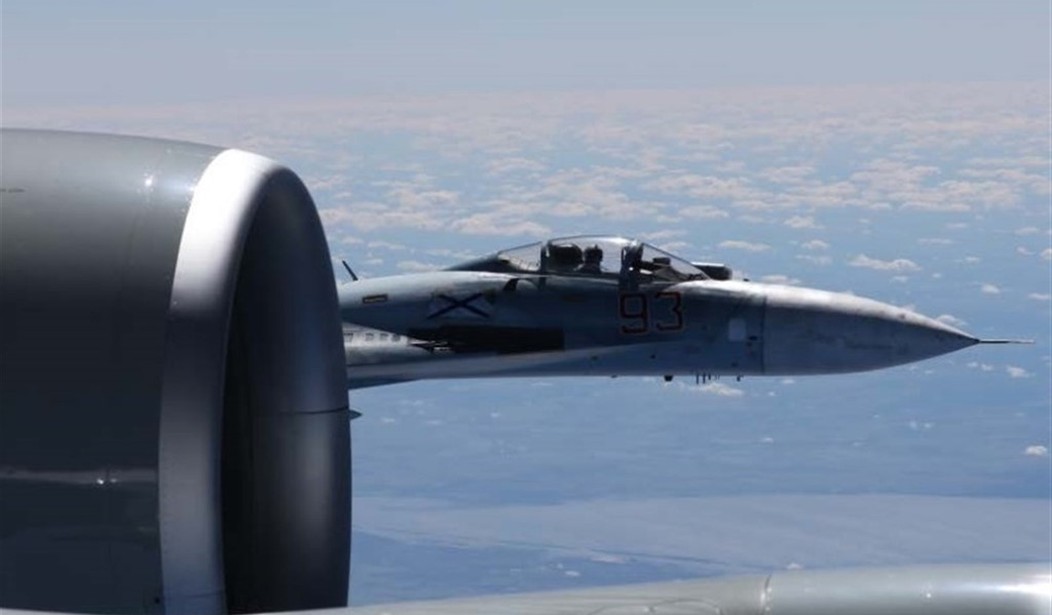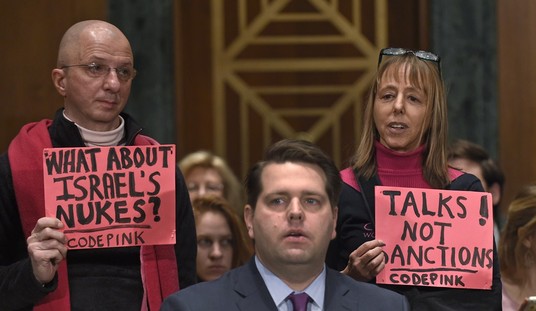When a Russian Su-27 collided with an American MQ-9 Reaper reconnaissance drone in international airspace over the Black Sea last month (Russian Fighter Intercepts US Drone over the Black Sea), many observers, including me, wrote it off as a hyper-aggressive Russian pilot working beyond his skill level. In the aftermath, the US response indicated that the attack on the drone would not be treated as an escalation (The Black Sea Drone Incident Doesn’t Mean Escalation Unless the Russians Want It).
Background
Fast forward to late last week when a trove of over 100 documents, some highly classified, appeared on social media. I traced the genesis of these documents in Secret Pentagon Documents Emerge on a Minecraft Players Forum, WTF? with a focus on a series of presentations focusing on training and equipping Ukrainian troops in Germany and the UK and combat operations in Ukraine.
One of the documents I did not have access to documented multiple instances of aggressive behavior by Russian pilots when intercepting NATO aircraft, including one in which a Russian fighter launched a missile at a British RC-135 “Rivet Joint” intelligence gathering aircraft.

CREDIT: Public Domain via Defense Visual Information Distribution Service/DVIDS
More Information Revealed
The incident with the British RC-135 is not unknown.
British Defense Secretary Ben Jones reported on the incident to the House of Commons in October.
“I would also like to share with the house details of a recent incident in international airspace over the Black Sea. On the 29th of September, an unarmed RAF RC 135 Rivet Joint ISTAR aircraft on routine patrol over the Black Sea was interacted with by two Russian armed Su-27 fighter aircraft.
It is not unusual for aircraft to be shadowed, and this day was no different. During that interaction, however, it transpired that one of the Su-27 aircraft released a missile in the vicinity of the RAF Rivet Joint beyond visual range, the total time of the interaction between the Russian aircraft and the rivet joint was approximately 90 minutes, the patrol completed, and the aircraft returned to its base.
In light of this potentially dangerous engagement. I’ve communicated my concerns directly to my Russian counterpart, Defence Minister Shoigu and the Chief of Defence Staff in Moscow, and has done so my colleague, the Chief of Defence Staff, has also communicated his concerns. In my letter, I made clear that the aircraft was unarmed in international airspace and following a pre-notified flight path. I felt it was prudent to suspend these patrols until a response was received by the Russian state.
The reply by the Russian Ministry of Defence on the 10th of October stated that they have conducted an investigation into the circumstances of the incident and say it was a technical malfunction of the Su-27 fighter. They also acknowledged that the incident took place in international airspace.
The Ministry of Defence has shared this information with allies, and after consultation, I have restarted routine patrols, but this time escorted by fighter aircraft. Everything we do is considered and calibrated with regard to the ongoing conflict in the region and in accordance with international law. We welcome Russia’s acknowledgement this was international airspace, and the UK has conducted regular sorties of the RAF Rivet Joint in international airspace over the Black Sea since 2019. And we will continue to do so. For security reasons, I will not provide further commentary on the detail of these operations. But I want to assure the House that this incident will not prevent the United Kingdom’s support for Ukraine and resistance to Russia’s illegal invasion. The UK government’s position remains unchanged.”
Since that time, British reconnaissance missions have had fighter escorts.
The leaked document goes a bit further. It refers to the incident as a “near shootdown.”
A Russian fighter jet nearly shot down a British surveillance plane last year, according to a leaked U.S. military document circulating online, an incident more significant than was previously disclosed and that could have drawn the United States and its NATO allies directly into the Ukraine war.
Are you on Telegram? Subscribe to our channel for the latest updates on Russia’s war in Ukraine.
The near miss occurred on Sept. 29 off the coast of Crimea, the heavily fortified Ukrainian peninsula that Russia seized in 2014 and has used to base its Black Sea naval fleet and launch attacks elsewhere in Ukraine.The document, one of dozens in a trove of leaked classified Pentagon documents that has triggered a Justice Department investigation, refers to the incident as a “near-shoot down of UK RJ,” a reference to the “Rivet Joint” moniker common for RC-135 reconnaissance planes. The aircraft is used to collect radio transmissions and other electronic messages.
I think classifying the incident as a “near shootdown” rather than parroting the Russian “explanation” of a “technical malfunction” is significant.
Russian military aircraft work under the intense supervision of ground control. Instead of the flight leader having a lot of autonomy, ground control must approve most decisions. The RC-135 is a signals intercept aircraft, and one has to assume that the communications between the Russian fighters and ground control were monitored. It was these communications that conclusively proved that the Russian shootdown of Korean Airlines KAL-007 was approved in Moscow.
A classified document referring to a near shootdown directly contradicts the British Defense Minister’s public statement that “it was an accident” is significant. Filling in the gaps, it looks like a Russian fighter aircraft fired a missile in the direction of the British aircraft in what was literally “a shot across the bow,” and much easier to believe than a “technical malfunction.” Needless to say, this is extraordinarily hostile behavior.
The document goes on to describe other Russian provocations.
The document is labeled “SECRET/NOFORN,” a classification that indicates it is not to be shared with non-U.S. citizens. It details a number of other Russian reactions to surveillance flights by U.S., British and French aircraft between October and the end of February, including one on Dec. 30 in which another British Rivet Joint, accompanied by two British Typhoon fighter jets, was intercepted by Russian jets that came within 100 feet.
In another instance, a U.S. MQ-9 surveillance drone was intercepted on Feb. 22, with Russian aircraft coming within 100 feet. About two weeks later, on March 14, two Russian Su-27 jets intercepted an American MQ-9, dumping fuel on the unmanned aerial vehicle and eventually colliding with it. The collision prompted U.S. personnel remotely piloting the vehicle to down it in the Black Sea, about 56 miles off the coast of Crimea, U.S. officials have said.
Mission Accomplished
The actions have had the intended effect.
A map on the document shows a boundary drawn over sections of the Black Sea to mark where surveillance planes may fly. It appears to begin about 12 miles off the coast of Crimea, adhering to international law. The map also includes a second line about 50 miles from the shore labeled “SECDEF Directed Standoff,” indicating that Defense Secretary Lloyd Austin may have ordered U.S. pilots to keep aircraft farther from the peninsula.
This contradicts our bloated Secretary of Defense Lloyd Austin woofing, “So make no mistake, the United States will continue to fly and to operate wherever international law allows.” The Reaper, knocked out of the sky by a Russian fighter on March 14, was about 70 miles from Russian-controlled territory, or 20 miles beyond the “SECDEF Directed Standoff.” This indicates the Russians are successfully maneuvering to deny access to international airspace over the Black Sea to NATO aircraft.
Implications
Just two thoughts on this. First, allowing Russia to push our aircraft 50 miles away from Russian airspace by bullying should not be acceptable to the Biden White House or the clown car that runs the Department of Defense. It demonstrates cowardice. That cowardice and reluctance to defend the right of navigation will not go unnoticed by other players like China and North Korea, who have shown no reluctance to push the envelope. Second, at this point, we have to assume that a significant number of the documents leaked last week are legitimate, and this is one of the most significant counterintelligence failures in US history.













Join the conversation as a VIP Member